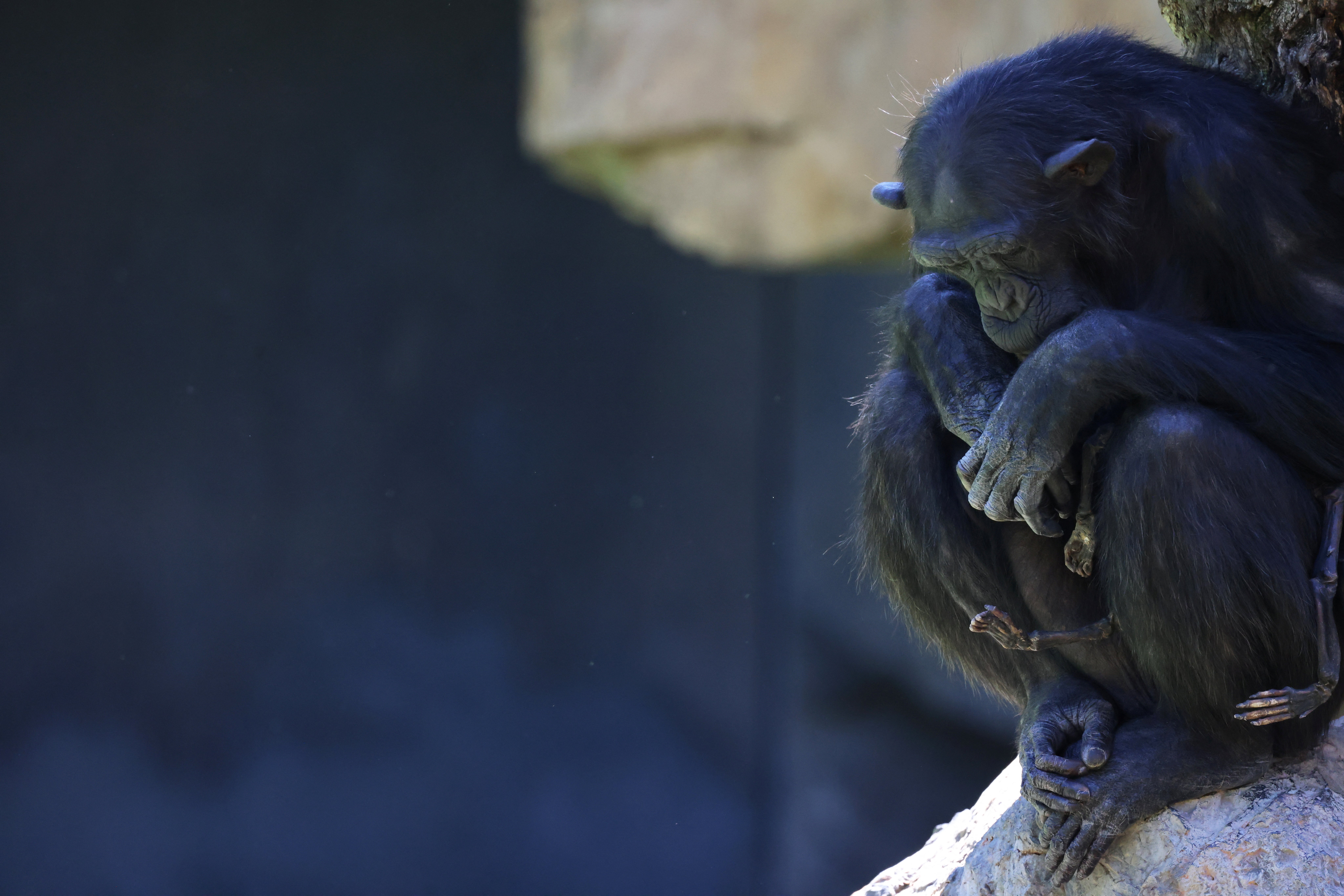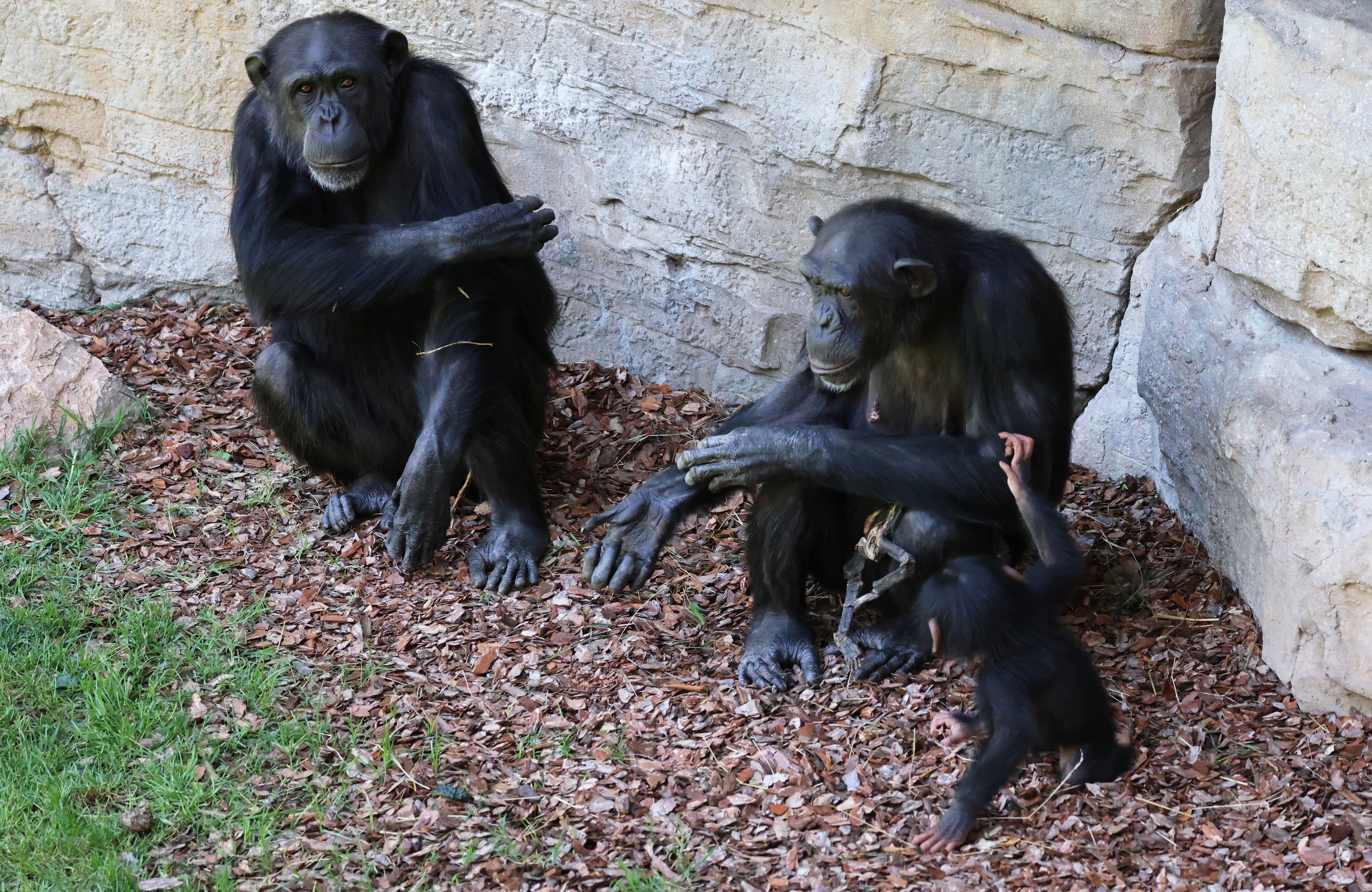Grieving chimpanzee nurtures her dead baby for months at Spanish zoo
Natalia lost her child when it was only a few days old. She has clung to the inert body ever since

Your support helps us to tell the story
From reproductive rights to climate change to Big Tech, The Independent is on the ground when the story is developing. Whether it's investigating the financials of Elon Musk's pro-Trump PAC or producing our latest documentary, 'The A Word', which shines a light on the American women fighting for reproductive rights, we know how important it is to parse out the facts from the messaging.
At such a critical moment in US history, we need reporters on the ground. Your donation allows us to keep sending journalists to speak to both sides of the story.
The Independent is trusted by Americans across the entire political spectrum. And unlike many other quality news outlets, we choose not to lock Americans out of our reporting and analysis with paywalls. We believe quality journalism should be available to everyone, paid for by those who can afford it.
Your support makes all the difference.A grieving chimpanzee has carried her dead baby around with her for three months, to the shock of zoo visitors.
Those heading to the Bioparc zoo in the Spanish city of Valencia have been greeted over the past three months with the sight of the grieving ape carrying around her dead baby.
Natalia lost her child when it was only a few days old. She has clung to the inert body ever since, seemingly unwilling to separate.
“This is a conduct that has been previously observed in chimpanzees, not only in zoos but also in the wild,” Miguel Casares, the head of Bioparc, told Reuters.
Like humans, chimpanzees may mourn the deaths of those close to them, but it is unusual for the process to be so stark or so long. Nevertheless, Casares said it must be respected, just as in humans:
“Our visitors, who at first are quite shocked by the sight of a dead baby, understand as soon as we explain to them why we have left it and why we keep it under observation.”

Natalia had already lost one of her offspring in 2018, so she has been closely monitored this time.
Chimpanzees are among the most endangered primates in Africa, where a wild population of 100,000 to 200,000 is suffering from hunting, habitat loss and disease.
A study earlier this month found Chimpanzees, like humans, may be life-long learners.
Researchers have found the great apes continue to learn and hone their tool-using skills well into adulthood.
The team observed the chimps became better at using their fingers to grip and manipulate their stick tools as they got older, and continued to sharpen their skills in the first 20 years of their lives.
The team said its findings, published in the journal Plos Biology, show perfecting skills is more than just a matter of physical development and potentially related to mental learning capacities as well.
The work also helps shed light on the thinking and lifelong learning skills evolved in humans, according to the researchers.
Join our commenting forum
Join thought-provoking conversations, follow other Independent readers and see their replies
Comments